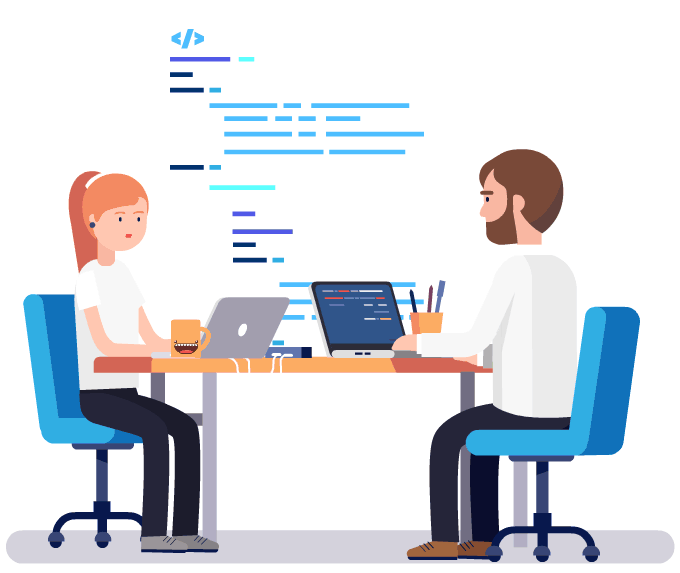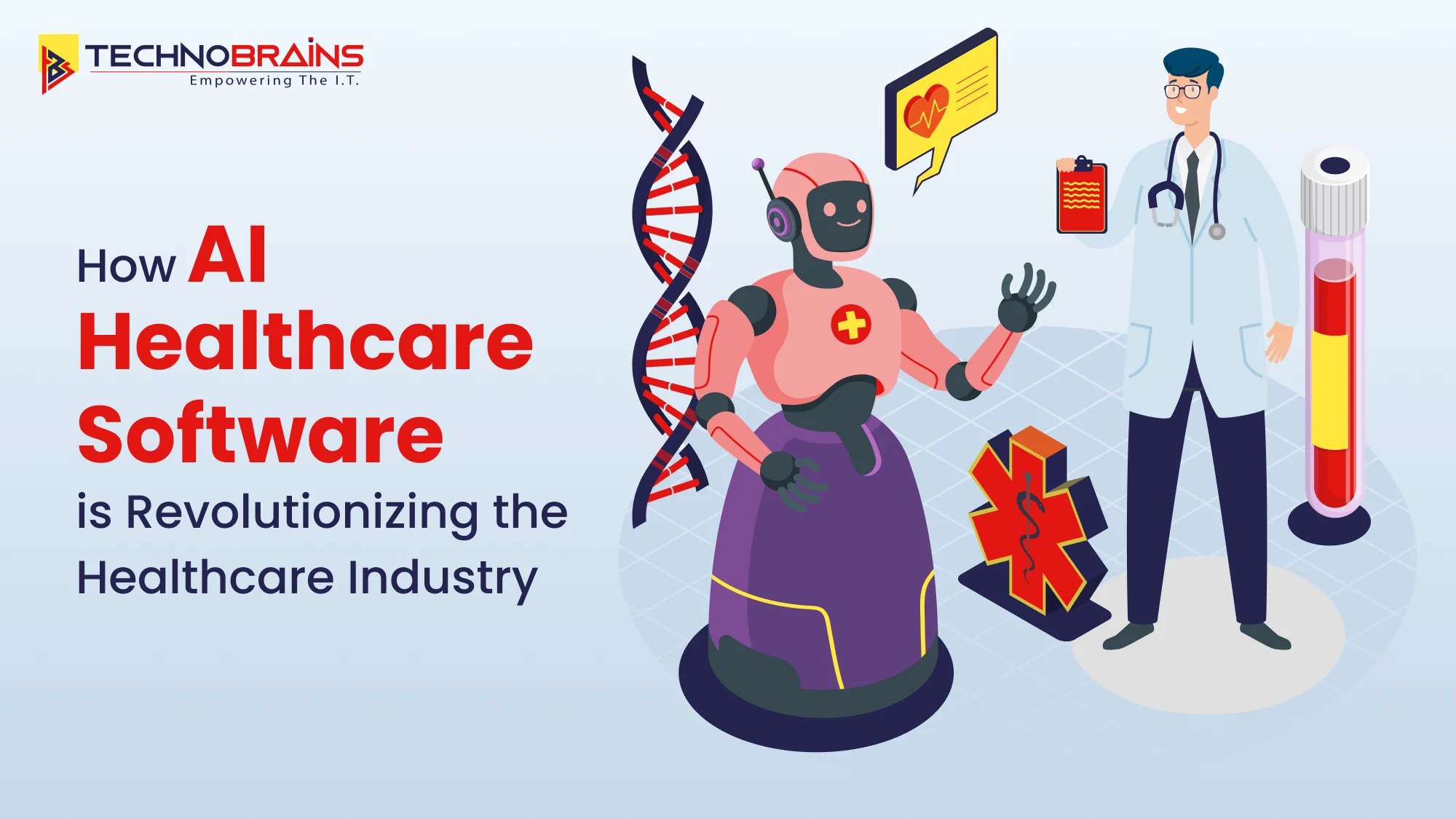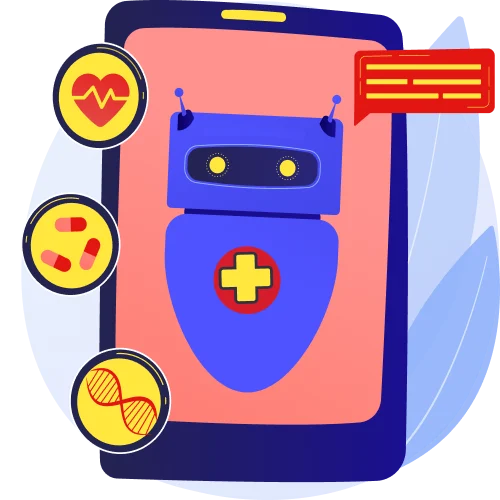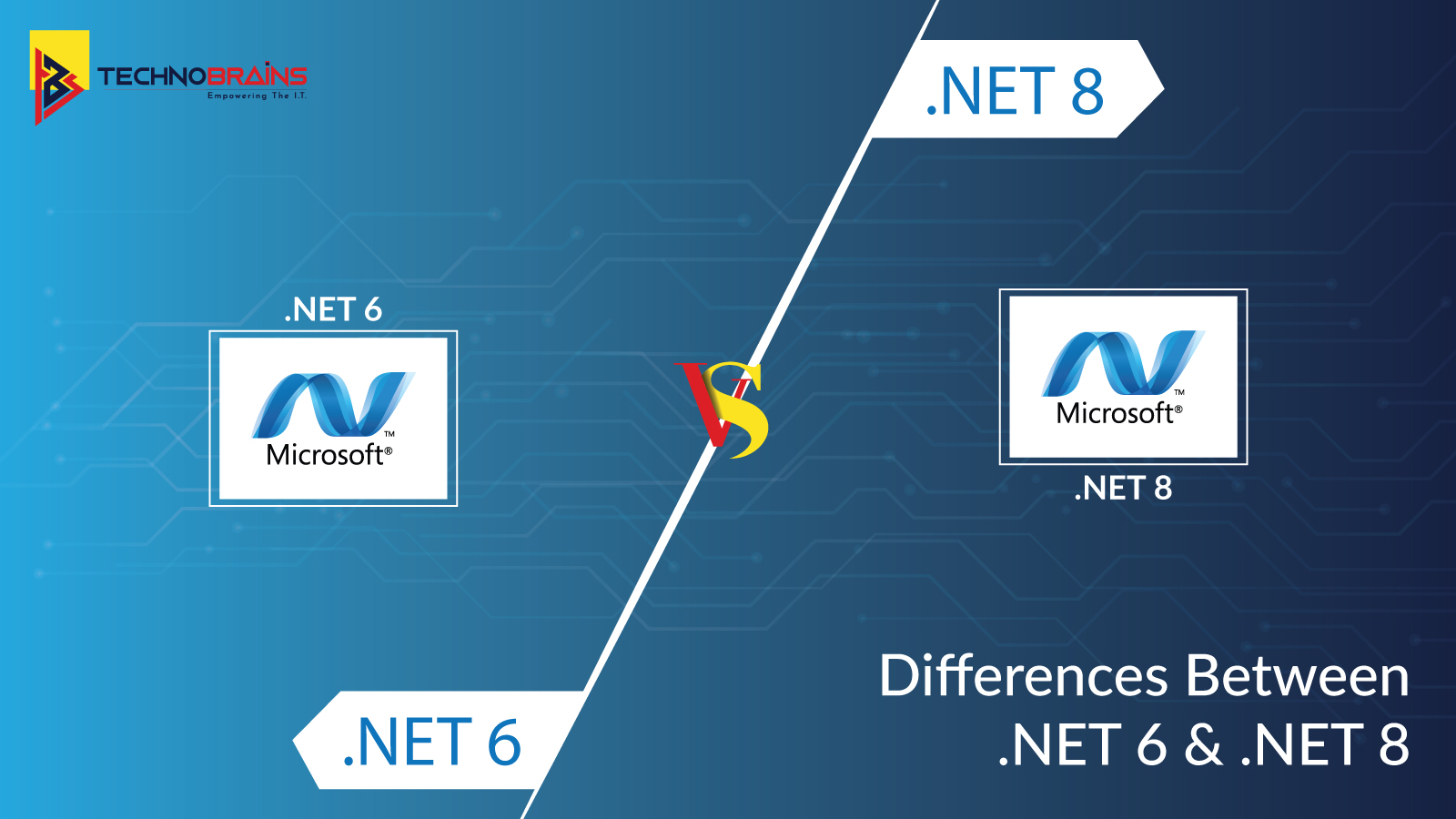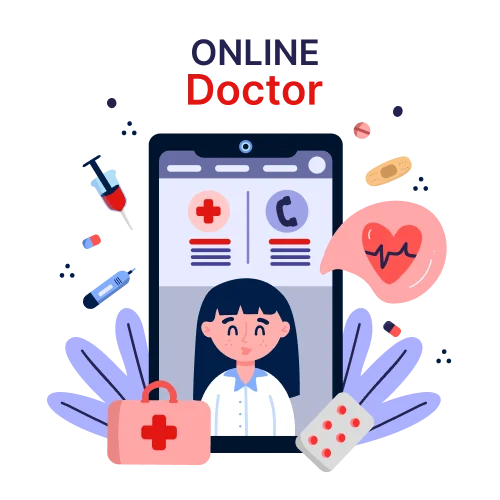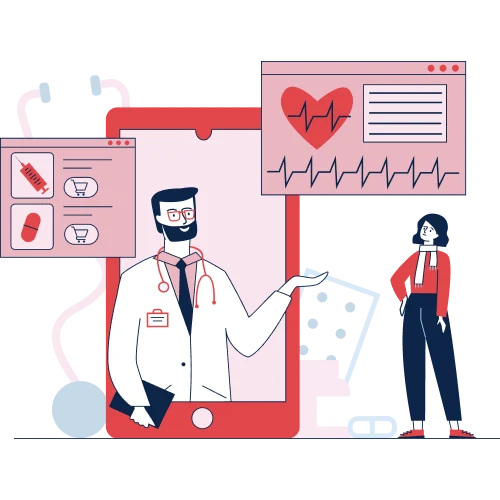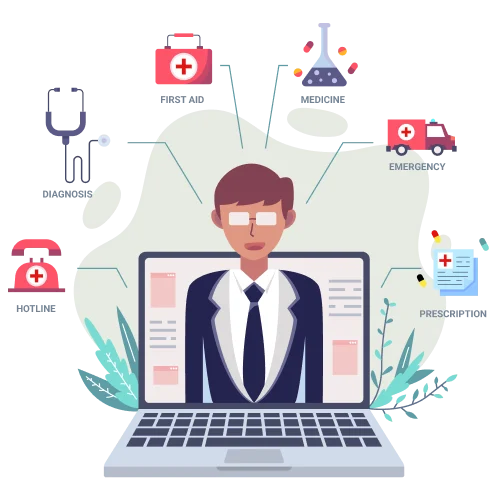Get 40 Hours Free Developer Trial
Test Our Developers for 40 Hours at No Cost - Start Your Free Trial →
In recent years, the healthcare industry has changed a lot because of new technology. One of the biggest reasons for this change is healthcare/AI software. More and more medical practitioners are using this software to improve the way they work.
In this article, we’ll discuss that AI is not only a trend but it’s a revolution that is reshaping patient care approaches in the healthcare industry. So, let’s explore the different aspects of AI software in the health sector and its impact on the future.
Understanding AI Healthcare Software
AI health software is a computer program that uses tech solutions to improve health and medical care. This software is designed to analyze complex health data, help with clinical decisions, and improve patients’ health outcomes.
But what exactly does AI mean in the healthcare & medical industry?
AI in healthcare usually encompasses machine learning algorithms processing large datasets. Machine learning algorithms can identify patterns, forecast outcomes and even recommend interventions from historical data. For example, AI has been used to predict health in hospitals so that interventions may be performed in a timely way to enhance the chances of survival.
Additionally, AI health software is not limited to clinical use. It also helps in administrative tasks like patient scheduling, billing, and resource management, among others. Healthcare professionals can give more time to treatments by automating these functions.
Role of AI in Healthcare
The role of AI in healthcare goes beyond the traditional scope, including diagnostic accuracy improvement, streamlining medical operations, and making custom treatments for each patient. In the field of diagnosis, AI algorithms can read and interpret body images such as X-rays and MRIs with great accuracy.
Another role of AI in healthcare is predictive analytics. Using historical information, AI is capable of predicting outbreaks of disease, admissions rates of patients, and even individualized responses to treatment from patients. This helps the health facilities to optimally distribute their resources and enhance outcomes in their patients.
Furthermore, AI is also important for personalised treatment plan development. By checking a patient’s genes, lifestyle, and health record, AI software can recommend a treatment more likely to be effective. Personalised treatment is not just making treatments more effective, but also increasing satisfaction levels among patients.
Also Read, Top Reasons to Update Your Healthcare System With AI.
Key Benefits of AI in Patient Care
The use of AI in patient care has brought many advantages that aim to reshape the landscape of healthcare. First and foremost, AI improves diagnosis with greater accuracy, which allows greater detection of conditions and earlier intervention. This is especially useful in oncology because earlier diagnosis has been shown to extend the possibility of increased survival rates.
Another benefit is enhanced operational efficiency. Daily routine tasks such as appointment setting and following up with patients can be automated through AI software that frees the health professionals to devote their time to more pressing parts of care. This not only eliminates some of the administrative load but also optimizes the overall experience of the patients.
Moreover, healthcare software also encourages improved patient interaction. Through AI-driven chatbots and virtual assistants, patients can be supported and advised round the clock. Round-the-clock interaction helps in the management of chronic illnesses and gives power to the patients to own their health.
How AI Software is Transforming Healthcare Operations
Artificial Intelligence software is revolutionizing healthcare operations by making processes simple and improving resource allocation. Hospital administration is among the areas where AI has a positive impact. AI algorithms optimize scheduling, manage stock, and forecast patient flow that resulting in decreased wait hours and improved delivery of service.
Beyond administration, AI is transforming clinical operations as well. For example, AI-driven robotic process automation (RPA) can automate routine activities like billing and data entry so that medical staff can concentrate on patient care. This doesn’t just save time, but also lessens the possibility of errors, such as those that can be expensive and harm patient safety.
Additionally, AI software improves supply chain management of healthcare facilities. By forecasting needs and streamlining inventory, AI guarantees that there is always access to vital medical supplies to avoid shortages and maintain uninterrupted patient treatment.
Learn about our custom healthcare software development services that leverage AI to enhance hospital operations, improve care delivery, and streamline workflows.
Popular AI Healthcare Software Solutions
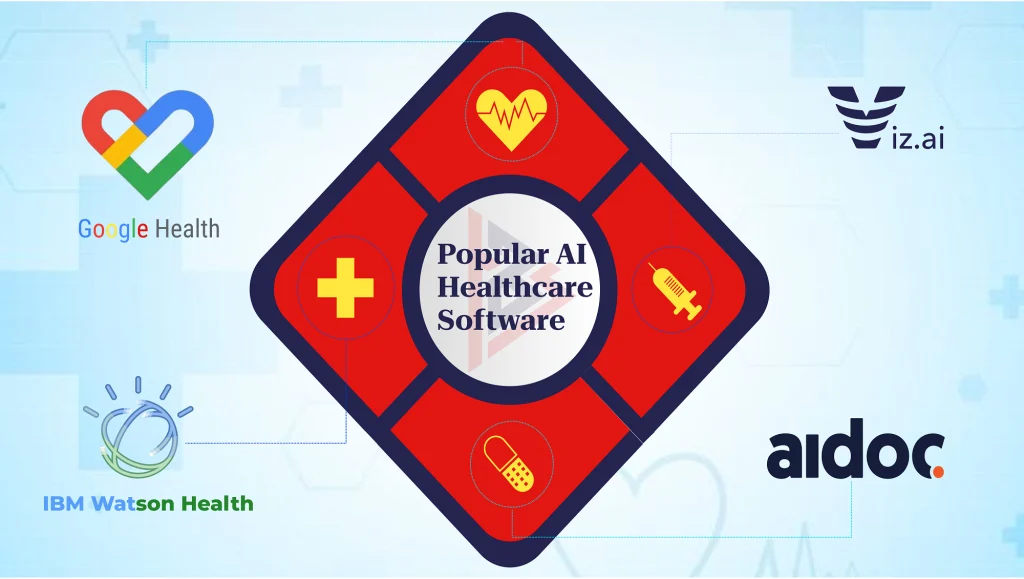
Many Artificial Intelligence healthcare software solutions have shown their effectiveness and offer helpful features. Here are some of them:
- Google Health: This platform uses AI to make healthcare easier to access and better quality. It does this through advanced ways of looking at data and teaching computers to learn.
- IBM Watson Health: This solution is known for its ability to think like a human. It helps analyze data, process medical images, and support doctors in making decisions about treatments.
- Viz.ai: Their platform features more than 50 FDA-cleared AI algorithms that analyze medical images and delivers real-time insights and automated assessments to accelerate diagnosis, streamline workflows, and support faster treatment decisions.
- Aidoc: This solution focuses on using AI to spot urgent problems in medical images. This helps radiologists deal with critical cases faster.
The above list of solutions highlights the diverse applications of AI in healthcare, from diagnosis to taking care of patients, and how they can transform the industry.
Things to Keep in Mind While Implementing AI
Even with various advantages, there are challenges and considerations when using AI health software. Data privacy and security stand out as one of the biggest challenges. Hospitals and clinics must protect patient details and follow Best Strategies for Developing HIPAA rules to avoid unauthorized access.
Furthermore, integrating AI into existing systems also creates difficulties. Many healthcare providers have legacy systems that may be incompatible with the latest technologies. Fixing this means spending a lot to update the infrastructure.
Moreover, healthcare workers need to learn how to use AI tools in a proper way. They need to understand how AI algorithms function and how to read AI-generated results to make better decisions.
Read Also, Practices for HIPAA-Compliant Healthcare Application Development
Future Trends of AI Software in Healthcare
The future of AI in healthcare is optimistic. Many trends will influence its growth. One of those trends is applying AI to genomics to analyze genetic information to detect predispositions for specific diseases and recommend preventive actions.
Another trend, virtual health assistants powered by AI, also marks a significant shift. These tools can give personalized health advice, check patients’ basic body functions remotely, and assist with mental health care for making healthcare simple and easy to access.
AI also shows potential as a game-changer in drug research and development. By processing massive datasets, it can uncover new drug prospects and predict their success, cutting down the time and cost required to launch into the market.
Choosing the Right AI Healthcare Software for You
Choosing the right AI healthcare software is important to get the most out of it. Here are some things you need to think about:
- Compatibility: Check if the AI system works well with your current setup and systems.
- Scalability: Go for a solution that can keep up as your facility grows and meets future needs.
- User-Friendliness: Select the software that’s easy for staff to use without much training.
- Support and Maintenance: Look at the vendor’s upkeep & help services and make sure they’ll update and maintain it on time.
When you keep these points in mind, you can select a software solution that aligns with what you want to achieve and boosts patient care.
Conclusion
AI healthcare software is bringing big changes to the medical field. They improve how patients receive care, make daily operations run more smoothly, and encourage new ideas. As these tools get better, they will play a bigger role in shaping healthcare’s future. Using AI, doctors and hospitals can provide patients with more tailored and improved treatments.
To adopt AI in your healthcare center, it is essential to study and pick the option that best meets your needs. The road ahead for using AI in patient care looks promising. By acting now, we can build a healthier future.
So, are you ready to upgrade your healthcare facility with AI? Contact TechnoBrains to find out ways AI software can transform your services and help patients in better ways.
